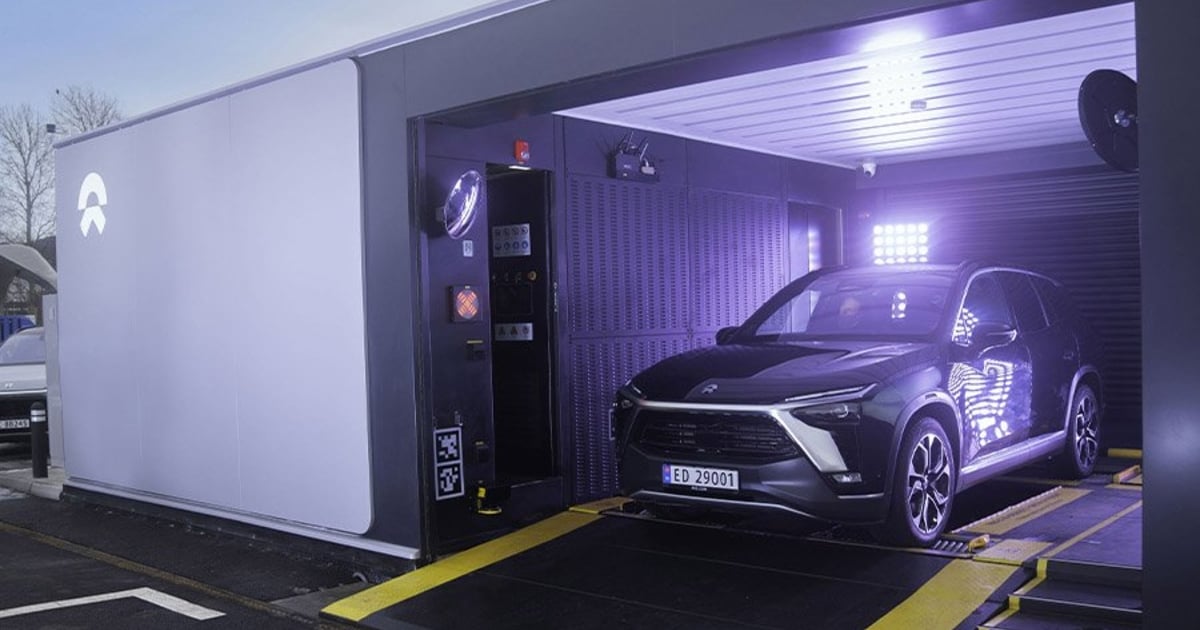
SHANGHAI – Chinese electric vehicle maker Nio Inc. began trial operation on Tuesday of faster, more efficient battery swapping stations in China in its push to make battery swapping a viable alternative to rival EV makers’ rapid-charging technology.
With capacity to store up to 21 battery packs each, Nio’s Power Swap Station 3.0 can speed up battery swapping to less than five minutes and lower the service cost per swap, Shen Fei, Nio senior vice president for power management, told reporters at an event in Shanghai last Thursday. The comments were embargoed for release on Tuesday.
Tesla’s rapid-charging Supercharger allows EV users to top up vehicles to a range of 200 miles in 15 minutes.
Battery swapping allows drivers to replace depleted packs quickly with fully charged packs, rather than plugging the vehicle in to a charging point. Swapping could help to ease the strain on power grids at peak times when drivers recharge, but industry analysts and executives expect it would only become feasible if batteries become more standardized.
Nio is among only a handful of EV makers betting on battery swapping as a major power option for electric vehicles. Rival Tesla has dismissed battery swapping as “riddled with problems and not suitable for widescale use.”
Nio, which has set a target of 2,300 battery swapping stations globally by year-end, had 1,323 in operation as of March 23, Shen said. It aims for 900 of the latest power swap stations to be operating this year, he added.
Nearly 60 percent of the power replenished for Nio vehicles in February was via battery swapping, while another 23 percent was from home chargers, Shen said.
Fewer than 10 percent of Nio users used public chargers while 80.5 percent of the power charged from Nio’s 14,000 chargers nationwide was for non-Nio users, including Tesla and BYD vehicles, he added.